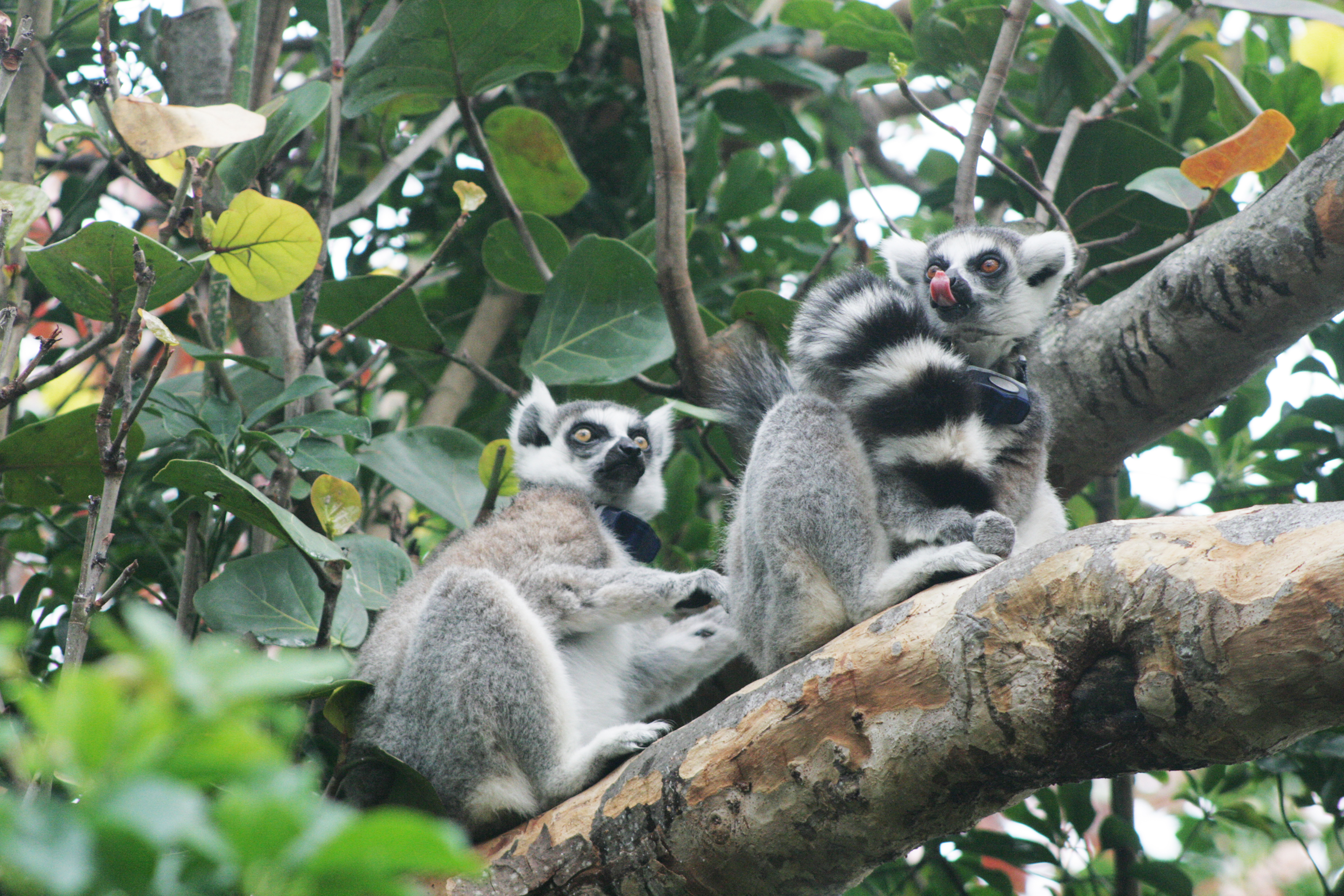Recent News
New lemurs arrive at BAMZTuesday, May 29, 2012
TUESDAY, MAY 29: Three new Bermuda residents—a trio of ring-tailed lemurs—are getting used to their home inside the Madagascar Exhibit at Bermuda Aquarium, Museum & Zoo.
St John’s Students “Discover Bermuda”
Friday, May 25, 2012
A group of students from Bermuda College and New York’s St. John’s University has spent most of the past fortnight exploring the Island as part of a course to “Discover Bermuda.”
Company is thanked for helping to house Orana the fossa
Wednesday, May 16, 2012
Orana the fossa, a popular creature at the Bermuda Aquarium and Zoo (BAMZ), had her enclosure dedicated to a reinsurance company who helped fund her home.
Zoo’s Fossa Exhibit Dedicated To RenaissanceRe
Tuesday, May 15, 2012
Bermuda Zoological Society is rewarding a generous capital campaign gift by dedicating part of the Bermuda Aquarium, Museum & Zoo’s Madagascar Exhibit to donor RenaissanceRe.
XL employees give back
Monday, May 07, 2012
Close to 150 of XL’s Bermuda-based employees chose to spend last Friday working on community projects throughout the Island.
About
GovernanceAbout Us
Newsletter
Latest News
Gift & Bookstore
Contact
General Inquiries
info@bzs.bm
Latest News
All the latest updates and news from the Bermuda Aquarium, Museum, and Zoo, one of Bermuda's leading visitor attractions!

The residents of the Bermuda Aquarium Museum and Zoo have not received Covid-19 vaccinations, but that could change as research continues.
Ian Walker, principle curator at BAMZ, confirmed that while some larger zoos in the United States have been working with a vaccine manufacturer to test a potential vaccine on a variety of species, no such vaccinations have been performed at BAMZ.
Dr Walker said: “It is my understanding that the United States Department of Agriculture has approved this vaccine for experimental use on a case-by-case basis in the United States only.”
He added that the number of species known to contract Covid-19 – and show symptoms of the virus – is still growing.
Dr Walker said: “The number of species of animals that are known to become infected, including showing symptoms, with this virus are growing.
“This is why we have taken the strict precautions we have at BAMZ from the start of the pandemic. These precautions help to protect our staff, animals and our visitors.
“We will continue to follow the science, work with our partners and will vaccinate the appropriate animal populations when a vaccine has been approved and we can gain access to it.”
The US-based Centres for Disease Control said that “companion animals” such as cats and dogs, along with several other species, have been able to contract the virus.
The CDC said: “There have been reports of animals infected with the virus worldwide. Most of these animals became infected after contact with people with Covid-19.”
Along with a small number of pets, zoo animals including lions, tigers, pumas, cougars, snow leopards and gorillas have tested positive for Covid-19 after showing signs of illness.
Minks at farms in several countries have also been shown to contract the virus, with mink to human spread of Covid-19 reported in the Netherlands, Denmark and Poland.
Recent experimental research has shown that many other mammals, including bank voles, ferrets, fruit bats, hamsters, pigs, rabbits, racoon dogs, tree shrews and white-tailed deer can be infected with the virus.


